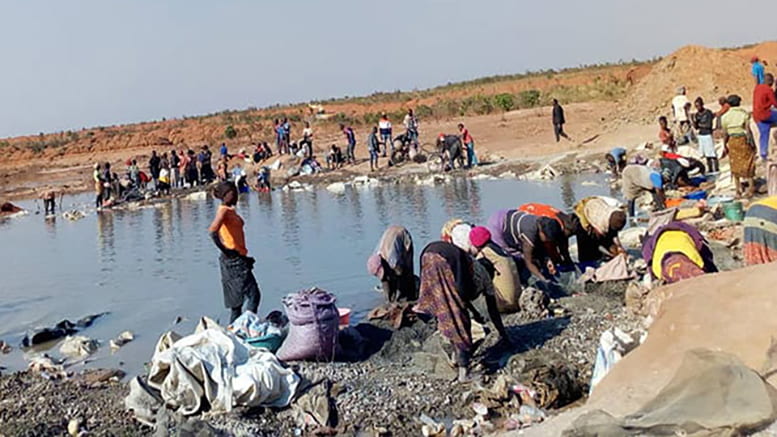Social consequences of green energy must be assessed in addition to environmental impacts, researchers say
December 17, 2021

After studying the impacts of mining cobalt — a common ingredient in lithium-ion batteries — on communities in Africa’s Democratic Republic of the Congo (DRC), an interdisciplinary team of researchers led by Northwestern University is calling for more data into how emerging technologies affect human health and livelihoods.
Such data can inform policymakers, industry leaders and consumers to make more socially and ethically responsible decisions when developing, funding and using green technologies.
The case study and perspective paper were published today (Dec. 17) in the journal One Earth.
“We have the framework and tools available to compare the environmental costs of automobiles that run on fossil fuels to battery-powered vehicles,” said Northwestern’s Jennifer Dunn, who led the study. “I can tell you the greenhouse gas emissions per mile for either one. But when it comes to the social effects, we don’t have the same capability for direct comparison. For many engineers, it’s easier to measure or calculate environmental effects than to understand the social conditions in a faraway country that they have never set foot in.”
Dunn is an associate professor of chemical and biological engineering at Northwestern’s McCormick School of Engineering and associate director of the Center for Engineering Sustainability and Resilience. To conduct the case study, Dunn led an interdisciplinary team of engineers, anthropologists and public health experts.
“For this type of work, it’s important to work across fields in order to be informed,” said Sera Young, study co-author and associate professor of anthropology at Northwestern’s Weinberg College of Arts and Sciences. “It might be difficult for engineers who are developing the technologies to understand the social effects. By working together, we can form a whole picture of the consequences of resource extraction.”

Society & Policy

Joel Mokyr wins Nobel Prize in Economic Sciences
October 13, 2025
Nobel recognizes Mokyr’s theory on sustained economic growth Joel Mokyr, the Robert H. Strotz Professor of Arts and Sciences and professor of economics and history in the Weinberg College of Arts and Sciences at Northwestern University, today (Oct….

Weinberg College faculty and graduate students recognized for excellence in teaching
July 2, 2025
Each year, the Weinberg College of Arts and Sciences and the Office of the Provost recognizes members of the College’s tenure-line and teaching-track faculty for excellence in teaching. Weinberg College in addition recognizes the contributions…

Passion for the planet: A new generation of environmental stewards starts here
May 29, 2025
Over the last two decades, the Weinberg College-housed Program in Environmental Policy and Culture (EPC) at Northwestern has embraced the humanities and social sciences and cultivated a new generation of environmental stewards. Growing up in…

The real beneficiaries of protective labor laws for women
May 20, 2025
During the first half of the 20th century, many states passed labor laws in response to the influx of women into the modern workplace. The so-called protective labor laws enacted by U.S. states restricted women’s…



